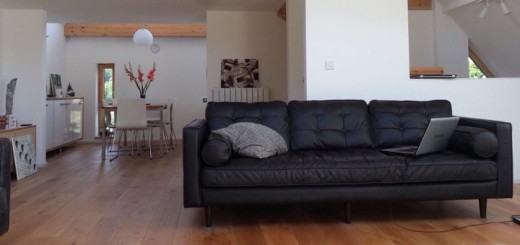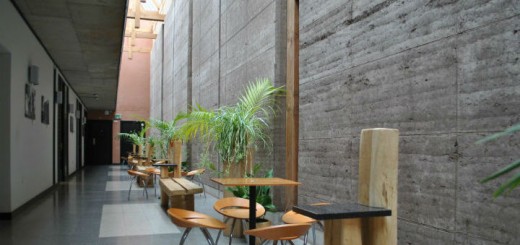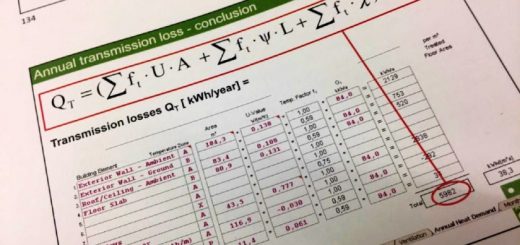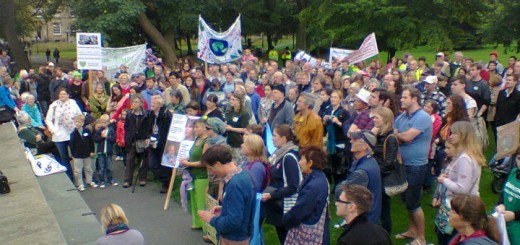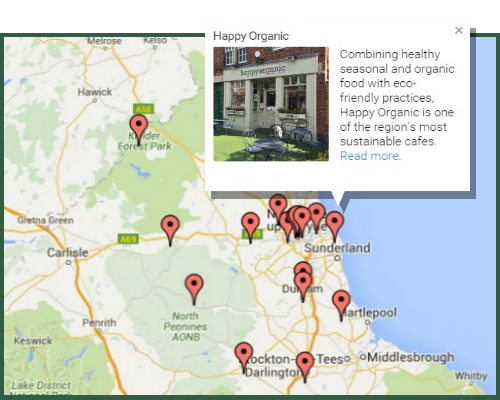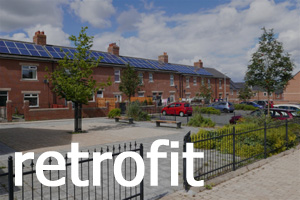Re-pute.it Laptop Upcycling
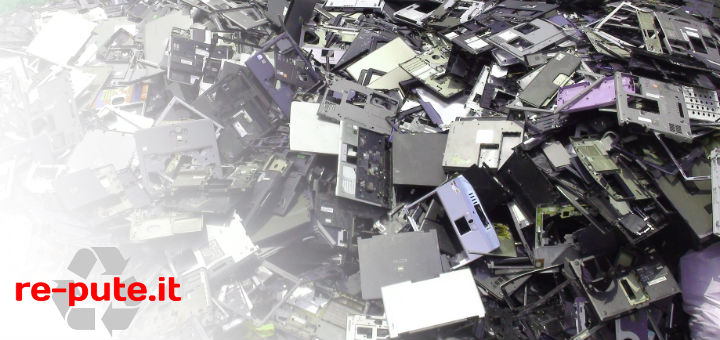
A new social enterprise in Durham is upcycling laptops to reduce e-waste and build community resilience.
An estimated 350,000 tonnes of e-waste are brought to household waste recycling centres in the UK each year (1). That’s a lot of waste electrical and electronic equipment, otherwise known as WEEE. What’s more, WRAP estimate that a quarter of it is immediately reusable following repair or refurbishment. Since the circular economy is still a long way off, we must keep these valuable resources in use for as long as possible.
Last November, Mark Ruddell set up the Durham-based social enterprise Re-pute.it to tackle the impact of e-waste. He’s been involved with computer reuse programmes for a decade now and believes that we don’t need to sacrifice the gadgets of modern day living to protect the environment. His venture diverts used business laptops from the e-waste stream and upcycles them to extend their lives.
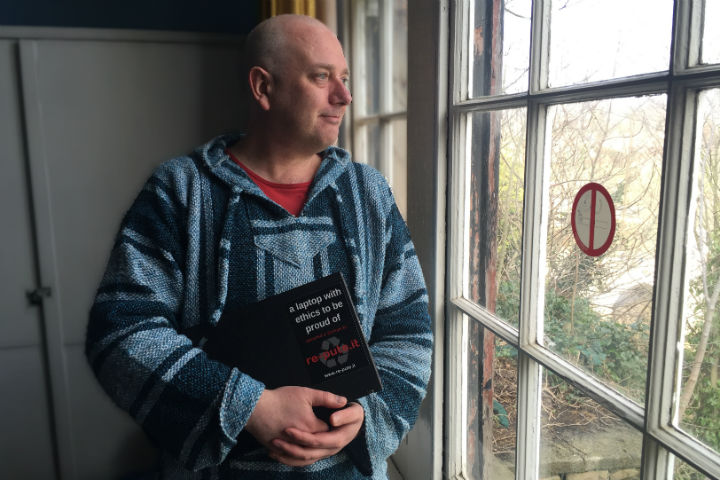
Mark Ruddell (©Tracing Green)
I went along to meet Mark at one of his computer clubs in Durham. “The things people buy require energy to produce, to distribute, use and dispose of, and that all adds up to more CO2 emissions,” explained Mark. “This is especially true of high-tech items like computers. Finding ways to extend their useful life is a great way to reduce their environmental impact.” He concentrates on taking ex-business machines because they’re well built, easier to repair, and it’s simpler for him to work on several similar models at the same time.
“Finding ways to extend their useful life is a great way to reduce their environmental impact.”Mark talks passionately about ‘planned obsolescence‘ and how it’s built into everyday consumer products like phones and laptops. It bugs me that phones and tablets run more and more slowly as each update of their operating system is issued. There’s nothing accidental about this, but Mark is tackling this wasteful planned obsolescence. A key part of his upcycling process is stripping away old operating systems and installing Linux Mint, a free and efficient operating system that can allow old laptops to continue running smoothly for years to come.
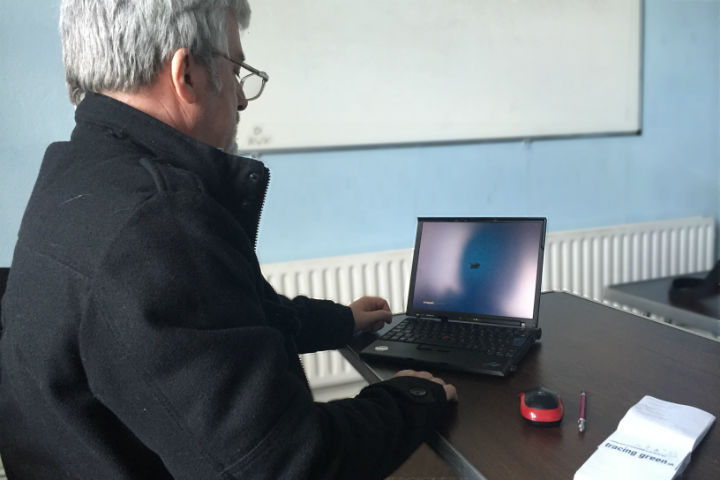
Re-pute.it computer club user (©Tracing Green)
There’s a social aspect to the work that Mark is doing with Re-pute.it. “Computers are tools for modern living,” he says. At only £100 for an up-cycled laptop, people shouldn’t have to go into debt to purchase one, and they will be less reliant on big-corporations. His monthly computer club in Durham is free to people who have purchased one of his machines in the last six months. Teaching people to use and repair their laptops is a key tool in building community resilience. In the session I attended, Mark demonstrated how to set up a home cloud-server, something that could even be done with a laptops with a broken screen or keyboard.
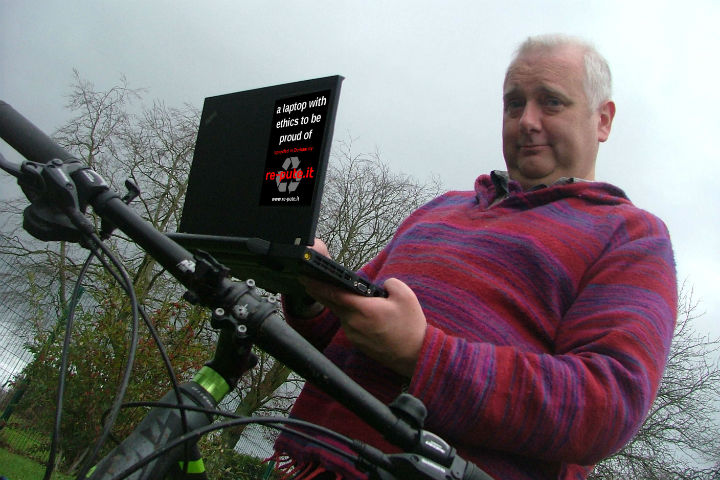
Mark Ruddell delivering laptops by bicycling (©Re-pute.it)
Sourcing all his waste laptops locally, and delivering the up-cycled products by bicycle, Mark is equally concerned with his own carbon footprint. Before he has to leave, to lecture to a class of Permaculture students, Mark confesses that he’s nervous about marketing his service too widely in case he stimulates wasteful consumption. It’s a balancing act he’ll just have to manage, because there’s no doubt that his work to reduce e-waste and to build community resilience is vital.
References
(1) Realising the Reuse Value of Houseshold WEEE, WRAP
Photo credit: Laptop e-waste in Guiyu, China, by Basel Action Network.





